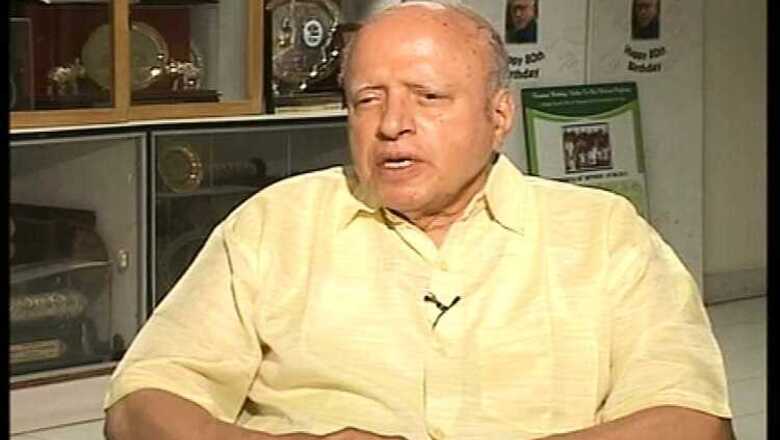
views
Every time MS Swaminathan, popularly known as the Father of Green Revolution in India, reads about a farmer death or suicide, his heart sinks. The 92-year-old geneticist, who devoted his life to improve farm yields, is deeply concerned about the future of farmers in the wake of ongoing protests in Madhya Pradesh, Maharashtra and Tamil Nadu. In an interview to News18, he identifies lack of access to credit and consequently essential inputs like seeds, fertiliser and water as the real reason behind current distress in farm economy. He says farm loan waivers provide only temporary relief, not solving the chronic problems associated with cost, risk and return structure of farming. Edited excerpts:
News18: From Madhya Pradesh to Maharashtra, farmers are protesting on streets. Why do you think it's happening now, right before monsoon?
Farmers of Maharashtra, Madhya Pradesh, Tamil Nadu and other states are protesting because they may not be able to get full benefit from the kharif season due to lack of access to credit and consequently essential inputs like seeds, fertiliser, water etc.
News18: How badly did demonetisation hurt farmers and informal economy in rural India?
MS Swaminathan (MSS): In my view, demonetisation affected farmers mostly because of the difficulties in operating a cash economy, which is characteristic of small scale agriculture. Also, demonetisation coincided with the kharif harvest and subsequently also rabi sowing. Current protests seem to be a result of the accumulation of a number of problems faced by farmers, including the impact of monsoon and the market over several years.
News18: Prime Minister Narendra Modi had promised to implement recommendations of the committee headed by you. How do you think his government has fared?
MSS: The recommendations of the National Commission on Farmers are yet to be implemented in an integrated manner. Only some specific recommendations like adding the term farmer’s welfare to the Ministry of Agriculture, distribution of soil health cards, improvement of insurance facilities, and larger investment in irrigation have been implemented or steps have been taken to implement them.
News18: What are the immediate priorities to reduce stress in the farm economy?
MSS: The immediate priorities relate to pricing, procurement and public distribution. Even crops like pulses and chilly have not been able to find a remunerative market. Farmers are throwing many of their products on the road because of the adverse economics of farming.
News18: Farm loan waivers have become a contentious political issue. Beyond this, what are the problems with farm credit and what needs to be done?
MSS: Farm loan waivers provide temporary relief, but do not help to solve the chronic problems associated with the cost, risk and return structure of farming. We should now attend to the implementation of the National Policy for Farmers, proposed by NCF.
News18: You had recommended that minimum support price (MSP) for crops should be at least 50 per cent more than their cost of production. Why have successive governments failed to do so?
MSS: We had recommended a purchase price of C2+ 50% because most farms are small in size and the marketable surplus is low. On the other hand, the risks are high due to both drought and other natural calamities and the absence of adequate public procurement. Although announcements have been made that the NCF report will be implemented, successive governments are yet to do so. Unfortunately, loan waiver seems to be the preferred solution to the serious chronic problems confronting the farm sector. This can be done if there is a political will to save farmers from economic collapse.
News18: Many believe government gives more subsidies to farm sector that required. What would you say to that?
MSS: Subsidies are being given to pump water and to apply mineral fertilisers. What the farmers urgently need are services like assured electricity supply, improved post-harvest technology, farm implements and assured and remunerative marketing. If these are provided, all farmers will benefit and subsidies, which normally benefit only the larger farmers, can be avoided.

















Comments
0 comment